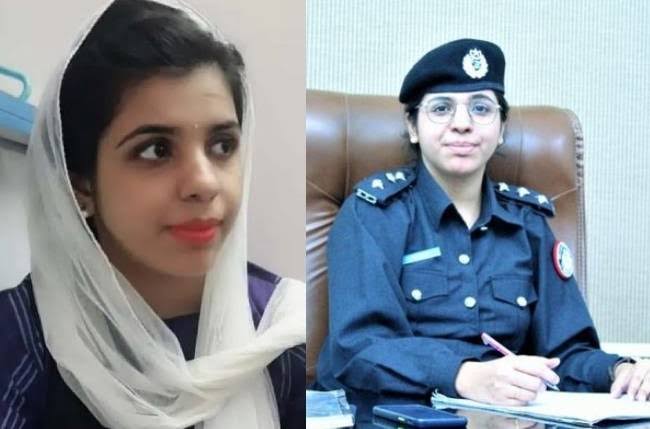Manisha Ropeta is making heads turn not only because she is among the few female officers in authoritative positions in Sindh Police but also for the fact that the 26-year-old is the first woman from the minority Hindu community in Pakistan to become a Deputy Superintendent of Police.
In Pakistan’s male-dominated society and culture, it is difficult for women to join professions considered “manly” such as the police force.
“From childhood, I and my sisters have seen the same old system of patriarchy where girls are told if they want to get educated and work it can only be as teachers or doctors,” Ropeta from Sindh’s Jacobabad area says.
Belonging to a middle-class family from Jacobabad in interior Sindh province, Ropeta says she wants to end this sentiment that girls from good families shouldn’t have anything to do with the police or district courts.
“Women are the most oppressed and the target of many crimes in our society and I joined the police because I feel we need ‘protector’ women in our society,” she says.
Ropeta, who is currently under training, will be posted in the crime-prone area of Lyari.
She feels that working as a senior police officer really empowers women and gives them authority.
“I want to lead a feminisation drive and encourage gender equality in the police force. I myself have always been very inspired and attracted to the police work,” the DSP says.
Her three other sisters are all doctors and her youngest brother is also studying medicine.
Asked what prompted her to choose a different profession, Ropeta says she had failed by one mark to clear her MBBS entrance examinations. “I then told my family I was taking a degree in physical therapy but at the same time I prepared for the Sindh Public Services Commission examinations and I passed that getting 16th position among 468 candidates.” Ropeta’s father was a trader in Jacobabad. He passed away when she was 13 after which her mother brought her children to Karachi and raised them.
She admits though it is not easy to be in a senior position in Sindh Police and to get on field training in a place like Lyari, her colleagues, superiors and juniors treat her with respect for her views and hard work.
Ropeta recalls that in her hometown it was not a usual practice for girls to pursue higher education and even when her relatives came to know she was joining the police force they said she wouldn’t last for long as it is a tough profession.
“So far I have proven them wrong,” she says.
Ropeta is hopeful of playing a big role in portraying a better image of the police whom many people still don’t trust and thus don’t report crimes.— PTI
